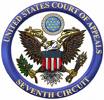Seventh Circuit Criminal Case of the Week: Other Bad Acts and the “Intricately Related” Doctrine
 Criminal law and procedure are structured around the act requirement: a defendant is prosecuted for performing a specifically identified unlawful act, the criminal trial is designed to determine whether the defendant actually committed that act, and, once the defendant has been convicted and punished, we commonly say that he has paid his debt to society and should be relieved from any additional punishment for the act (a principle that is roughly codified in the Double Jeopardy Clause). The act, not the person, is the basic unit of analysis.
Criminal law and procedure are structured around the act requirement: a defendant is prosecuted for performing a specifically identified unlawful act, the criminal trial is designed to determine whether the defendant actually committed that act, and, once the defendant has been convicted and punished, we commonly say that he has paid his debt to society and should be relieved from any additional punishment for the act (a principle that is roughly codified in the Double Jeopardy Clause). The act, not the person, is the basic unit of analysis.
However, a host of recent trends in criminal law are putting tremendous pressure on the old act-based approach and pointing to a new paradigm in which a defendant is punished based on his propensity to commit crime, with little or no regard to the severity of the particular act of which he has been convicted (if, indeed, there has been a conviction at all). Some examples include the use of relevant conduct in the federal sentencing guidelines, three strikes laws and other sentence enhancements based on prior convictions, felon-in-possession laws, civil commitment of sex offenders, and preventive detention of terrorism suspects. Such innovations are suggestive of a system in which we punish bad people, not bad acts. To be sure, there is a wide gray area in which it is unclear whether we are punishing acts or people, but when (for instance) we impose what is effectively a life sentence for the theft of three golf clubs (as was done under the California three strikes law), there can be little doubt that the person, not the act, is the target of our condemnation.
Although sentencing law may most dramatically reveal the competition between the act and propensity paradigms, evidence law is also implicated — perhaps most importantly in Federal Rule of Evidence 404(b), which seems pretty clearly to embrace the act paradigm. More specifically, the rule states that evidence of other bad acts is not admissible to show the character of a defendant or his propensity to commit crime. Yet, to judge by recent Seventh Circuit cases, it seems that evidence of uncharged drug offenses and prior drug convictions are routinely used against defendants in drug cases. (See, for instance, my post here.)
Last week, the court shed some light on the Rule 404(b) exceptions in United States v. Conner (No. 07-3527) (Kanne, J.).

 Under 21 U.S.C. § 841(b)(1)(A), certain drug offenders face a mandatory sentence of life imprisonment if they have two prior drug felony convictions. As befits such a draconian statute, special procedural protections have been adopted to ensure that the mandatory minimum does not take defendants by suprise at sentencing. Thus, 21 U.S.C. § 851(a)(1) requires that “before trial . . . the United States attorney [must] . . . serve[] a copy of [an] information on the [defendant] . . . stating in writing the previous convictions to be relied upon.” But the statute does not specify under what circumstances, if any, a failure to comply with the rule precludes imposition of the mandatory minimum.
Under 21 U.S.C. § 841(b)(1)(A), certain drug offenders face a mandatory sentence of life imprisonment if they have two prior drug felony convictions. As befits such a draconian statute, special procedural protections have been adopted to ensure that the mandatory minimum does not take defendants by suprise at sentencing. Thus, 21 U.S.C. § 851(a)(1) requires that “before trial . . . the United States attorney [must] . . . serve[] a copy of [an] information on the [defendant] . . . stating in writing the previous convictions to be relied upon.” But the statute does not specify under what circumstances, if any, a failure to comply with the rule precludes imposition of the mandatory minimum.